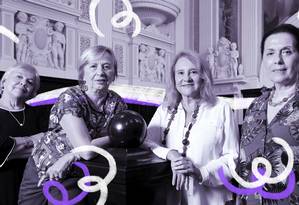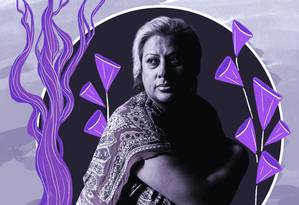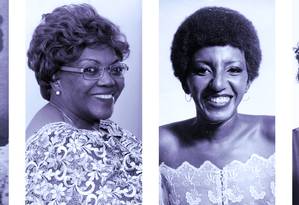Antes
de Putin, dezenas de outros dirigentes políticos já anunciaram a morte do
liberalismo, entre nós Getúlio Vargas, por exemplo, a inaugurar o Estado Novo.
Antes
dele, os líderes nazistas, e ainda antes os dirigentes bolcheviques.
Bela
tradição de autoritários essa seguida por Putin...
Atualmente
temos também os "iliberais", os dirigentes de "democracias"
que eles se esforçam por transformar em sistemas autocráticos.
Paulo
Roberto de Almeida
Brasília,
30 de junho de 2019
O liberalismo
está obsoleto?
“O liberalismo está obsoleto”. Quem
disse isso foi ninguém menos que Vladimir Putin, o poderoso presidente da
Rússia, para a edição de 28 de junho do jornal inglês Financial Times. Ele
disse mais. Em pleno G20 afirmou que a chanceler alemã, Angela Merkel, havia
cometido um erro fundamental ao adotar uma política liberal para imigração do
Oriente Médio. Merkel autorizou a entrada de mais de um milhão de refugiados na
Alemanha, principalmente sírios, fugindo da guerra.
Putin disse que “A ideia liberal (…) está
em conflito com os interesses de uma maioria esmagadora da população”. Para
ilustrar o que seriam esses “interesses da maioria” afirmou que, embora,
segundo ele, a Rússia não seja um país marcado pela homofobia, a disposição do
Ocidente em abraçar a homossexualidade e a fluidez de gênero são excessivas
“num mundo baseado em valores bíblicos”.
Em suma, disse, liberais já “não podem
simplesmente ditar qualquer coisa para qualquer um, como vêm tentando fazer ao
longo das últimas décadas”. O liberalismo ocidental perdeu espaço devido ao
ressentimento com imigração, multiculturalismo e valores seculares.
Financial Times, Londres – 29.6.2019
Vladimir Putin says liberalism has ‘become
obsolete’
In an exclusive interview with the FT, the Russian president trumpets
growth of national populism
Lionel Barber, Henry
Foy and Alex Barker
Moscow and Osaka - Vladimir Putin has trumpeted the growth of
national populist movements in Europe and America, crowing that liberalism is
spent as an ideological force.
In an FT interview in the Kremlin on the eve of the G20 summit in
Osaka, Japan, the
Russian president said “the liberal idea” had “outlived its purpose” as the
public turned against immigration, open borders and multiculturalism.
Mr Putin’s evisceration of
liberalism — the dominant western ideology since the end of the second world
war in 1945 — chimes with anti-establishment leaders from US president Donald
Trump to Hungary’s Viktor Orban, Matteo Salvini in Italy, and the Brexit
insurgency in the UK.
“[Liberals] cannot
simply dictate anything to anyone just like they have been attempting to do
over the recent decades,” he said.
Mr Putin branded
Chancellor Angela Merkel’s decision to admit more than 1m refugees to Germany,
mainly from war-ravaged Syria, as a “cardinal mistake”. But he praised Donald
Trump for trying to stop the flow of migrants and drugs from Mexico.
“This liberal idea
presupposes that nothing needs to be done. That migrants can kill, plunder and
rape with impunity because their rights as migrants have to be protected.”
He added: “Every crime must have its punishment. The liberal idea has
become obsolete. It has come into conflict with the interests of the
overwhelming majority of the population.”
Donald Tusk, the
European Council president, said he “strongly disagreed” with Mr Putin.
“What I find really
obsolete is authoritarianism, personality cults and the rule of oligarchs,” he
said.
As the de facto ruler of
Russia for almost two decades, Mr Putin, 66, has been regularly accused of
covertly supporting populist movements through financial aid and social media,
notably in the 2016 US presidential election, the Brexit referendum and the
recent European Parliament elections.
Mr Putin emphatically
denied this. He dismissed the conclusion by special counsel Robert Mueller that
Russia had systemically interfered in the 2016 US presidential election as
“mythical interference”.
Turning to the US-China trade war and geopolitical tensions in the Gulf
between the US and Iran, Mr Putin said the situation had become “explosive”.
The problem, he said, stemmed from American unilateralism and the lack of rules
underpinning world order.
He expressed concern
about the threat of a renewed nuclear arms race between the US and Russia. “The
cold war was a bad thing?.?.?.?but there were at least some rules that all
participants in international communication more or less adhered to or tried to
follow. Now, it seems that there are no rules at all,” he said.
On a positive note, Mr
Putin said there were tentative signs of a thaw in Anglo-Russian relations
ahead of his meeting in Osaka with Theresa May, her farewell summit as UK prime
minister.
“I think Russia and UK
are both interested in fully restoring our relations, at least I hope a few
preliminary steps will be made.”
Relations between London
and Moscow have been frozen after the attempted assassination of former Russian
double agent Sergei Skripal in Salisbury, England.
The UK government blames
the Russian government for the nerve agent attack, but Mr Putin said there was
no evidence to support this. Mr Skripal had served a sentence in Russia before
being released in a spy swap with the UK, he noted.
Mr Putin made clear,
however, that he had zero tolerance for spies who betrayed their country.
“Treason is the gravest crime possible and traitors must be punished. I am not
saying that the Salisbury incident is the way to do it?.?.?.?but traitors must
be punished.”
Theresa May, the UK
prime minister, said she will demand the suspects in the attack are extradited
and “brought to justice” when she sees Mr Putin on Friday — their first
face-to-face meeting since the incident.
“We would be open to a different relationship with Russia but if that is
going to happen then Russia needs to stop its activity that undermines
international treaties and undermines our collective security like what
happened on the streets of Salisbury,” she told journalists en route to Osaka.
In recent years, Mr
Putin has become emboldened, presiding over the annexation of Crimea, a
pro-Russian revolt in eastern Ukraine and a military intervention in Syria
which he described as a clear-cut success.
Apart from killing
thousands of radical Islamists and shoring up President Bashar al-Assad’s
regime, Mr Putin said the exercise had given Russia’s armed forces invaluable
fighting experience.
He made no mention of
the fact the seven-year-old war has resulted in more than 5m refugees and
500,000 dead. However, he did point to the waves of immigration from conflict
zones in Africa and the Middle East which had fostered crime and social
strains, in turn fuelling an anti-establishment backlash in Europe.
Echoing nationalist
populists such as Mr Salvini and France’s Marine Le Pen, Mr Putin said liberal
governments had not acted to reassure citizens. Instead they had pursued a
mindless multiculturalism embracing, among other things, sexual diversity.
“I am not trying to insult anyone because we have been condemned for our
alleged homophobia. But we have no problem with LGBT persons. God forbid, let
them live as they wish,” he said. “But some things do appear excessive to us.
They claim now that children can play five or six gender roles.”
“Let everyone be happy, we have no problem with that,” he added. “But
this must not be allowed to overshadow the culture, traditions and traditional
family values of millions of people making up the core population.”
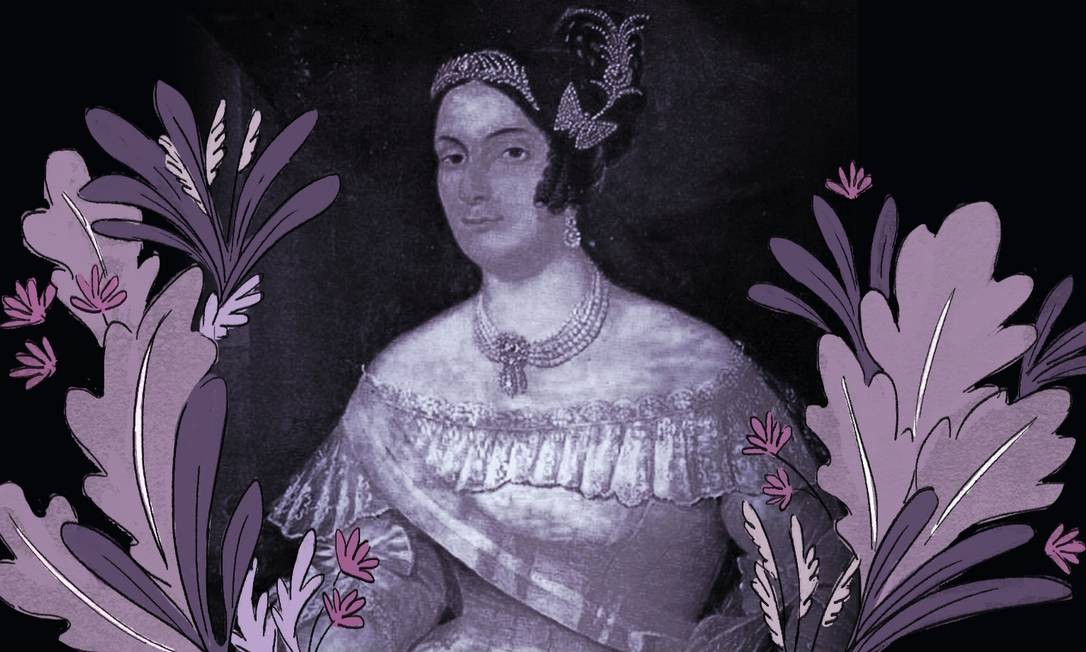 A marquesa de Santos entrou para a História como amante de D. Pedro I e teve sua atuação política apagada Foto: Reprodução
A marquesa de Santos entrou para a História como amante de D. Pedro I e teve sua atuação política apagada Foto: Reprodução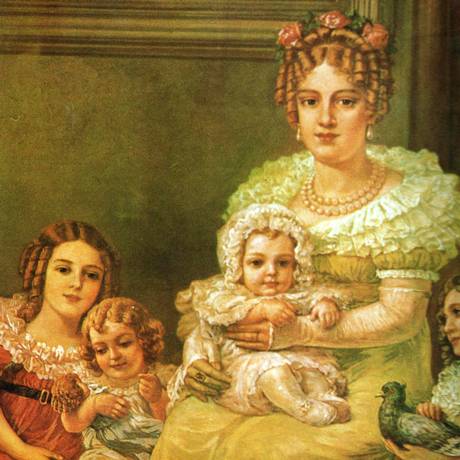 A Imperatriz Leopoldina passou para a História como mulher traída, mas teve participação importante nos eventos que culminaram na independência do Brasil Foto: ReproduçãoA imperatriz tinha uma rede de sociabilidade que permitiu, inclusive, o reconhecimento do Brasil como nação independente. Antes disso, Leopoldina preparara basicamente o "Dia do Fico". O fato de D. Pedro I ter ficado no Brasil, e outras questões relativas à Independência, mostram que ela estava por trás o tempo todo. Entra na História como a mulher traída, que teve de aguentar a amante do marido. Mas isso não resume sua vida. Leopoldina morreu antes de completar 30 anos, mas teve uma vida, principalmente política, muito forte e muito importante para a independência brasileira. Foi a primeira mulher a governar o Brasil, em várias ocasiões, quando D. Pedro I viajava. E isso também foi apagado.
A Imperatriz Leopoldina passou para a História como mulher traída, mas teve participação importante nos eventos que culminaram na independência do Brasil Foto: ReproduçãoA imperatriz tinha uma rede de sociabilidade que permitiu, inclusive, o reconhecimento do Brasil como nação independente. Antes disso, Leopoldina preparara basicamente o "Dia do Fico". O fato de D. Pedro I ter ficado no Brasil, e outras questões relativas à Independência, mostram que ela estava por trás o tempo todo. Entra na História como a mulher traída, que teve de aguentar a amante do marido. Mas isso não resume sua vida. Leopoldina morreu antes de completar 30 anos, mas teve uma vida, principalmente política, muito forte e muito importante para a independência brasileira. Foi a primeira mulher a governar o Brasil, em várias ocasiões, quando D. Pedro I viajava. E isso também foi apagado.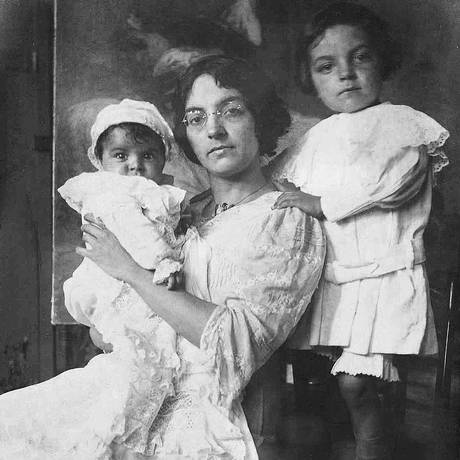 Georgina de Albuquerque se tornou a primeira mulher a pintar uma temática histórica envolvendo outra mulher: Leopoldina presidindo o conselho de Estado que determinou a independência do Brasil Foto: ReproduçãoAs primeiras a terem acesso ao estudo do corpo foram pintoras e escultoras da virada do século XIX para o XX. Georgina de Albuquerque estudou no exterior. Muitas delas acabavam complementando os seus estudos de nu artístico, de modelo-vivo, na Academia Julian, em Paris. No Brasil, era complicado: a legislação permitia, mas elas não se sentiam bem com os homens. Havia hostilidade contra mulheres nas classes de modelo-vivo. Georgina foi uma das que trabalharam o modelo-vivo e se tornou a primeira mulher a pintar uma temática histórica envolvendo outra mulher: Leopoldina sentada, presidindo o conselho de Estado que determinou a independência do Brasil. Nesse mesmo período, isso é 1921 e 1922, ocorreu o Centenário da Independência. Muitos artistas plásticos voltaram com esta temática histórica na pintura. Ao mesmo tempo, o italiano Domenico Failutti também pintou Leopoldina, mas sob encomenda do Museu Paulista (Museu do Ipiranga). Só que, pela encomenda do diretor do museu, é como? Ela sentada, rodeada de filhos. Assim, o homem viu Leopoldina como a mãe de D. Pedro II, esposa de D. Pedro I, e outra mulher a viu como estadista, participando do conselho de Estado.
Georgina de Albuquerque se tornou a primeira mulher a pintar uma temática histórica envolvendo outra mulher: Leopoldina presidindo o conselho de Estado que determinou a independência do Brasil Foto: ReproduçãoAs primeiras a terem acesso ao estudo do corpo foram pintoras e escultoras da virada do século XIX para o XX. Georgina de Albuquerque estudou no exterior. Muitas delas acabavam complementando os seus estudos de nu artístico, de modelo-vivo, na Academia Julian, em Paris. No Brasil, era complicado: a legislação permitia, mas elas não se sentiam bem com os homens. Havia hostilidade contra mulheres nas classes de modelo-vivo. Georgina foi uma das que trabalharam o modelo-vivo e se tornou a primeira mulher a pintar uma temática histórica envolvendo outra mulher: Leopoldina sentada, presidindo o conselho de Estado que determinou a independência do Brasil. Nesse mesmo período, isso é 1921 e 1922, ocorreu o Centenário da Independência. Muitos artistas plásticos voltaram com esta temática histórica na pintura. Ao mesmo tempo, o italiano Domenico Failutti também pintou Leopoldina, mas sob encomenda do Museu Paulista (Museu do Ipiranga). Só que, pela encomenda do diretor do museu, é como? Ela sentada, rodeada de filhos. Assim, o homem viu Leopoldina como a mãe de D. Pedro II, esposa de D. Pedro I, e outra mulher a viu como estadista, participando do conselho de Estado.